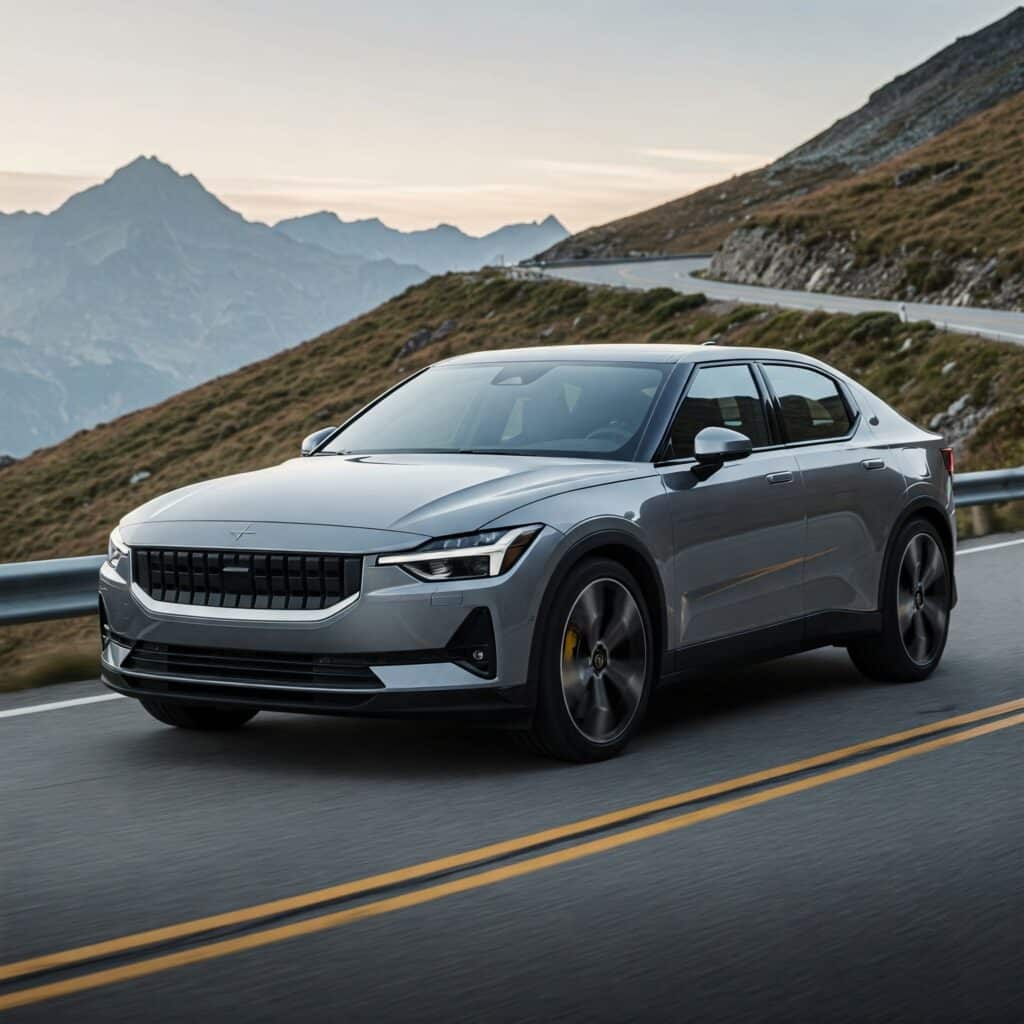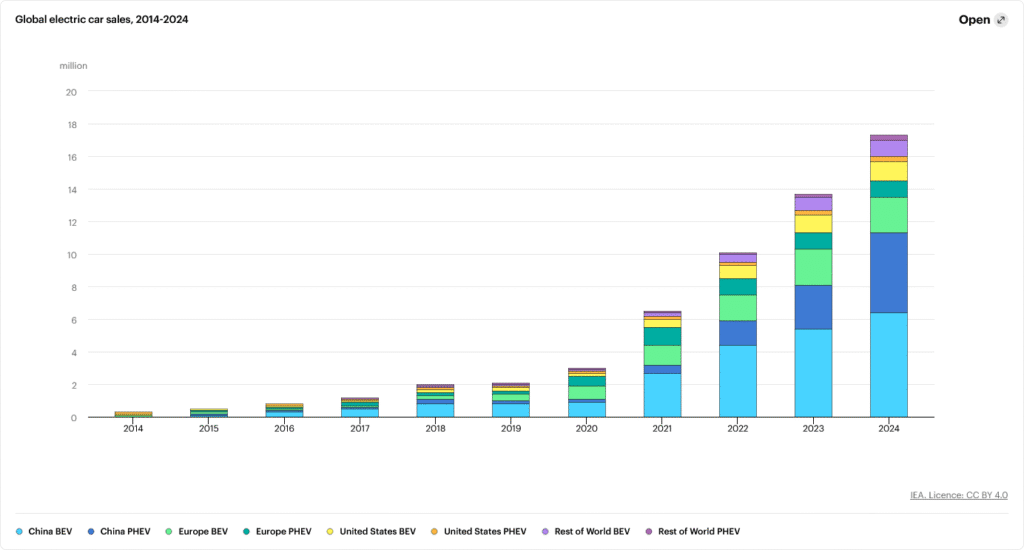IEA Says More Than One in Four Cars Sold Worldwide in 2025 Will Be Electric
Despite ongoing economic uncertainty and challenges in the auto sector, the global shift toward electric vehicles (EVs) shows no signs of slowing. According to the International Energy Agency (IEA’s) newly released Global EV Outlook 2025, electric cars are expected to exceed 40% of global market share by 2030 — a milestone driven by falling prices, rapid technological progress, and growing adoption across emerging markets.
Global EV sales surged past 17 million in 2024, pushing electric vehicles to over 20% of the total global car market for the first time. The momentum continued into 2025, with EV sales in the first quarter up 35% year-on-year. The IEA forecasts that electric car sales will cross 20 million in 2025, accounting for over one in four new cars sold worldwide.
“Our data shows that, despite significant uncertainties, electric cars remain on a strong growth trajectory globally. Sales continue to set new records, with major implications for the international auto industry,” said IEA Executive Director Fatih Birol. “This year, we expect more than one in four cars sold worldwide to be electric, with growth accelerating in many emerging economies. By the end of this decade, it is set to be more than two in five cars as EVs become increasingly affordable.”

China Leads, Emerging Markets Gain Ground
China continues to dominate the EV market, accounting for nearly half of all global electric car sales in 2024 — more than 11 million vehicles, matching the worldwide total in 2022. This dominance is paired with China’s expanding role as an exporter: nearly 1.25 million EVs were shipped abroad last year, many to emerging markets where their competitive pricing has spurred adoption.
Emerging economies in Asia and Latin America are becoming key growth engines, with combined EV sales in these regions climbing more than 60% in 2024. In contrast, Europe’s EV market plateaued as government incentives waned, although EVs still captured about 20% of market share. The U.S. saw moderate but steady growth, with EVs making up more than 10% of new car sales in 2024.
Affordability Drives EV Adoption
The report highlights a significant drop in battery electric vehicle (BEV) prices globally in 2024, driven by increased market competition and declining battery costs. In China, nearly two-thirds of electric cars sold last year were cheaper than comparable gasoline vehicles, even without subsidies.
However, the price gap persists in higher-income markets. In Germany, BEVs still averaged 20% more than their internal combustion engine (ICE) counterparts; in the U.S., the difference was closer to 30%. Still, the lower cost of ownership — thanks to cheaper charging and maintenance — continues to make EVs a financially sound long-term choice.
For example, even if oil prices dropped to $40 per barrel, the cost of charging an EV at home in Europe would still be roughly half that of fueling a gasoline car at current electricity rates. When one also considers the far lower maintenance costs of EVs vs. ICE vehicles, the EVs make far greater economic sense.

Electric Trucks Gain Traction
The Outlook also shines a spotlight on electric trucks, a sector that saw global sales grow by 80% in 2024. While still a small slice of the total truck market at around 2%, electric trucks are beginning to make inroads, particularly in China. In some segments, the lower operating costs of electric trucks are already making them cost-competitive with diesel models, despite higher upfront prices.

Preparing for an Electric Future
To support this ongoing transition, the IEA has updated its Global EV Data Explorer and Policy Explorer — two digital tools that help policymakers, researchers, and industry stakeholders track the evolution of the EV landscape.
Additionally, the IEA is preparing a major report on the future of the global auto industry, due this summer. It will focus on strengthening EV supply chains and maintaining industrial competitiveness as automakers accelerate their electrification plans.
While uncertainties remain — including the global economic outlook and future trade policies — the trajectory of the EV market appears clear. As electric cars become increasingly affordable and accessible across the globe, their share of the automotive landscape is set to expand rapidly. The IEA’s data reinforces what many in the industry already see: the electric revolution is not coming — it’s already here.
EVinfo.net’s Take
In December 2024, we wrote about the many reasons America must do better to compete in the global automotive market, which is quickly transitioning from ICE to electric. China has become the global automotive leader. If we don’t reverse our current course, China’s lead over the US will only grow.
EVs are not only more eco-friendly, but also more cost-effective. EVs are an important part of the global fight against climate change. Car owners switching to EV from gas will not only be doing their part to save the environment, they will be saving themselves money at the same time.
EVinfo.net recommends fast, fun, reliable and high-quality EVs by Ford, Hyundai/Kia, Rivian, BMW, Mercedes-Benz, GM, Porsche, Volkswagen, Lucid Motors, Audi, Mini Cooper, Polestar, Volvo, Jeep, and Honda.

Electric Vehicle Marketing Consultant, Writer and Editor. Publisher EVinfo.net.
Services